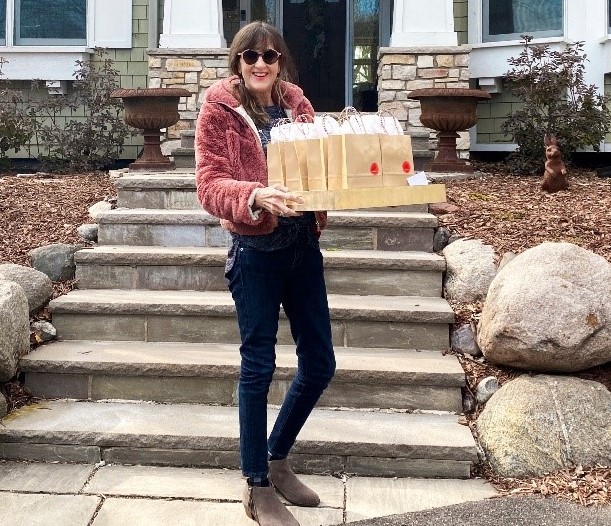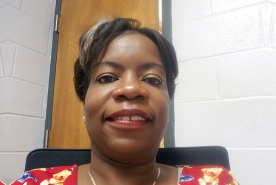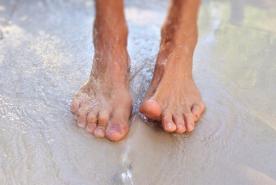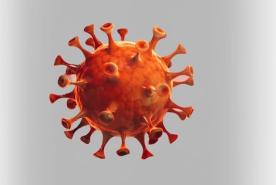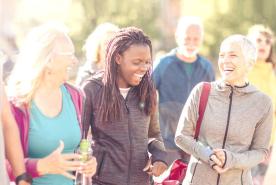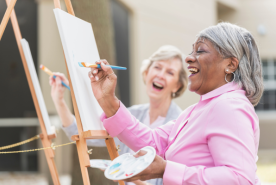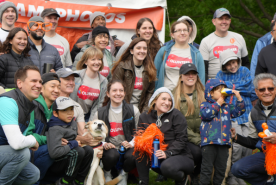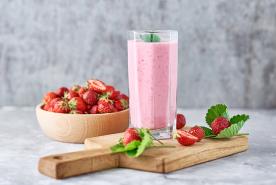October 27, 2020
*Editors Note* Jennifer wrote this story at the begining of the COVID-19 pandemic. She would go on to raise over $12,000 for the Live Happy, Dammit Kidney Walk Team.
Typically, I forge ahead in my life as a grateful kidney transplant recipient, diving into my work and cherishing family and friends. Living happily with the precious gift of life, my identity as a kidney patient, while ever present, tucks into the background. Seemingly overnight, however, the coronavirus emerged to intensify my kidney patient identity. I’m besieged with warnings about my vulnerability if this invisible threat finds me. As messages saturate my inbox and me with anxiety and fear, I fortify my resolve to take every precaution to avoid COVID- 19.
This unprecedented chaos also reinvigorates my ability to accept hard truths and plow ahead, anyway. You don’t endure four kidney transplants without developing some coping techniques. And I’ve always found that stepping outside of myself to help others eases the way. I’m continually amazed and lifted by the generosity of people that bubbles up in difficult times. So in this difficult time, as a kidney patient and board member of the National Kidney Foundation, I wanted to DO something helpful. But what
Then, I checked Facebook and watched my friend, Julie Burton, leading a live group to foster togetherness for her co-working business, ModernWell, which is temporarily closed to slow the coronavirus spread. As fate would have it, Julie wore the t-shirt I created for my 2019 Kidney Walk team. Right there, front and center on her shirt, my long-time motto and team name shouted at me. “Live Happy, Dammit!” Julie, with her signature kindness, shared that the shirt was born of my advocacy efforts to focus on daily gratitude and kidney wellness. The next thing I knew, comments started coming. Where do I get that shirt?
Instantly, I rummaged through my stockpile of t-shirts and knew just what to do. I’d make them available for sale and donate the proceeds to the National Kidney Foundation. A swirl of amazing things happened. People reached out, one after another, asking to buy a cute shirt for a critical cause. I delivered them door to door, careful not to come in contact with anyone. Mostly homebound? Yes. Helpless? No.
Two of my favorite things merged to elevate me beyond the coronavirus chaos—connecting with people and giving back. To my delight, so many shared that the sentiment of Live Happy, Dammit! cheers them on too. And when we face seriously serious problems together, it seems the smallest of things may lighten the load. So if a slogan on a t-shirt can do that, plus benefit kidney patients, it’ a win-win.
If you are at high-risk, or not, but feel homebound and helpless, I encourage you to think of ways to connect with and help others. A phone call or email to someone that may be lonely can go a long way. If you’re involved with the Kidney Walk, start today. Reach out to your team and supporters to let them know that kidney patients are vulnerable and need extra help, especially now. If you’re inspired to raise funds and hope for kidney patients, and want to be creative, brainstorm a unique Team Kidney project. If you’re interested in learning how to mentor kidney patients over the phone, look into the NKF PEERS Mentor program.
Alternatively, if you’re a kidney patient that would like a mentor, reach out to the NKF to get information on how to become a mentee. Please remember and rest assured, if you need extra assistance during this time, people are at the ready to help. Perhaps the flurry of uncertainty that keeps us apart now, can also bring us together.
Because together, we will get through this. We will wash our hands for twenty seconds and struggle to purge the tune of “Happy Birthday” from our heads. We will abide by social distancing recommendations and stay safe. People will reach out to us and offer their help, and just the same, we will reach out to others and offer ours. That is the beautiful thing that rises despite this coronavirus reality of shut-down restaurants, theaters, retails stores, and non-essential businesses—there’s no way to shut down the restorative power of people helping people.
